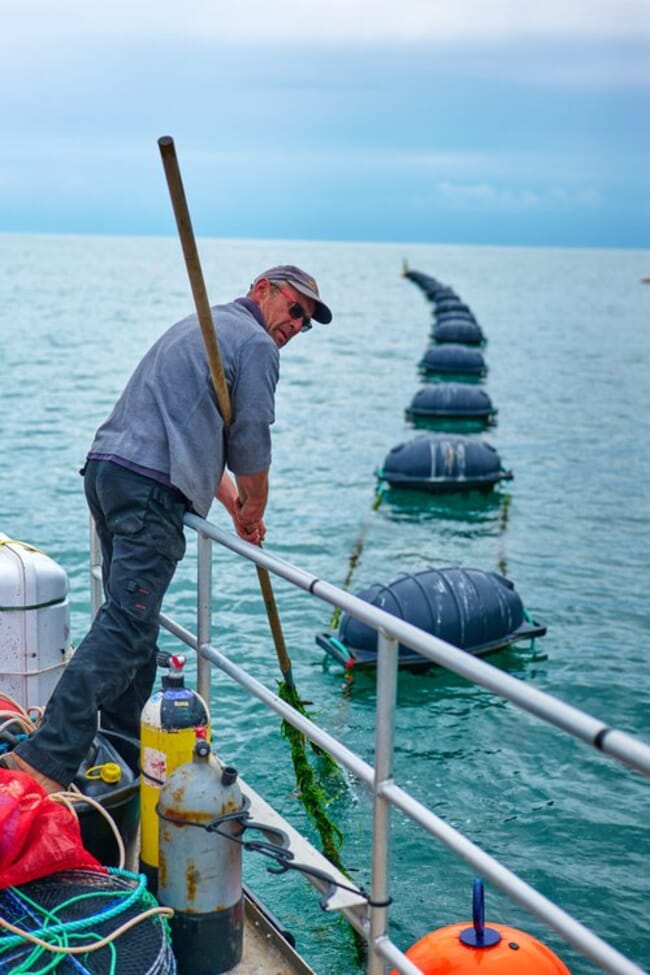
© Câr-y-Môr
Câr-y-Môr, a community benefit society founded in 2019, aims to pioneer an environmentally conscious approach to ocean farming. Using an integrated multi-trophic aquaculture model, which includes the farming of both shellfish and seaweeds, the organisation seeks to provide benefits and career opportunities for their local community whilst having a positive impact on the coastal marine environment of their home.
National Resources Wales, the governing body which initially granted the 5 year licence, continued to argue against the extension of the licence for Câr-y-Môr based on claims that the organisation could not carry out the requirements of an environmental impact monitoring plan, despite Câr-y-Môr providing data from benthic surveys.
“This whole process (from marine licence application to appeal hearing) has made it apparent that there is an inherent lack of flexibility and a lack of creative problem solving within the Welsh regulatory framework. During the appeal hearing Câr-y-Môr was told that a twenty year marine licence would not have passed [the] Habitat Regulations Assessment,” explained the members of Câr-y-Môr, in an announcement of the licensing extension.
“No answer was given when asked why a twenty year marine licence with five year conditions based on monitoring (e.g. if environmental impact happens on a five year assessment the infrastructure must be removed from the water) was not considered,” they added.
In addition to criticising the inflexibility of the regulatory process, following the appeal, Câr-y-Môr also references the Well-being of Future Generations (Wales) Act 2015, claiming that the sustainable development of activities which will have potentially positive impacts on the marine environment, such as their multitrophic farm, is exactly what this legislation supports.
In the wake of their successful appeal, Câr-y-Môr seeks to explore the possibility of using their farmed seaweed as a bio-stimulant for terrestrial agriculture with the aim of removing the need for fertiliser use, and linking the farming of land and sea through sustainable practice,
“This will enable a totally linked eco-system and all too often, this is a concept that’s left totally ignored,” said Owen Haines, a founding member of the organisation.
“I’m hopeful that Friday’s decision will now set a precedent for future community-based and nature positive projects as it’s apparent that there is a disconnection between solutions to fighting the climate and biodiversity crisis, and regulatory nature conservation,” he added.




